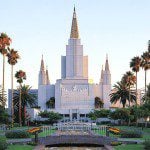Now Featured in the Patheos Book Club
Sacred America, Sacred World
Fulfilling Our Mission in Service to All
By Stephen Dinan
What do you mean by Sacred America?
Sacred is a word that binds us together in the mystery of life and links us into a single human family. In a truly sacred world, no one is ultimately our enemy. A sacred worldview leads to a life filled with respect and reverence.
We then connect the term "sacred" to America. America means many things to the world, ranging from a shining city on the hill that flies the flag of freedom to a feared military empire. Much can be said about the current state of America's character, but perhaps the most essential is that America has a pioneering spirit, always experimenting to find something that works better, never resting for long on our past, always seeking the next higher possibility or the newest frontier. We are not a country that stagnates for long; America is a roaring engine for evolution.
It is that spirit of innovation, adventure, and possibility that needs to inform this exploration of what happens when "sacred" and "America" come together. Sacred America is a call for us to reach for our highest destiny as a country. I believe our truest destiny is not built on our desire to be number one, but rather a humbler sense of calling, animated by a spirit of global service. We are called to explore new frontiers politically, economically, and even spiritually, not just in service to our own citizens, but in service to the world.
What are we shifting toward politically?
I believe that we are transitioning to a truly global era in which we will, once and for all, eradicate war and unite as a human family as never before. We see this happening remarkably rapidly in the realms of technology, travel, and business. But it's also happening with our consciousness and our politics. We're increasingly becoming global citizens first, national citizens second. I believe America simply must play a leading role in this transition, embracing it as the path beyond the waste and tragedy of war and towards real health, sustainability and prosperity for all. I believe the pathway forward requires the best of both progressive and conservative values and a collaborative style of politics that seeks higher ground. Global accords and councils will replace the endless posturing of the military era.
You say that you are a progressive who has learned a lot from conservative values? Say more.
I used to be a more strident progressive who would see conservatives as the problem rather than part of the solution that represents a complementary value system. Conservatives tend to focus on preserving what has worked in the past, which is a useful function.
In the human body, we have strong elements required for health that basically protect our homeostasis. Too much change happening too quickly is dangerous for our body and for life. Conservatives often play the same role in a society, minimizing the risk of chaotic change and preserving core values, commitments, and culture. Having a strong foundation actually allows us to grow further and so I have evolved to see and honor conservatives for their role in maintaining traditions and American character even while I still focus on the ways we are naturally evolving to another level—a "more perfect" union.
I've found conservative values and perspectives a good cross-training in my role as a spiritually-based CEO, where it's imperative that I not risk everything on each new idea. The Buddha taught the Middle Way as the more enlightened path and that also applies to drawing upon the best of conservative perspectives while opening to new possibilities for innovation and cultural expression, which tends to be the focus of progressives.
What do you see as some of the most significant shadow issues that America hasn't faced?
There are many interrelated shadow issues that America is often reluctant to face but I think at the root is an unwillingness to see ourselves as the aggressor and victimizer. Ultimately, this stems from never being able to face the Native American genocide and African enslavement that formed the twin sins of our early history.
If we undertake a much deeper healing of these wounds, which will require humble contrition and an inventory of our shadow side, it becomes easier to see the ways that we are still perpetuating injustice and oppression in the world.
We can all do outreach and healing work ourselves and ultimately it's helpful to have a kind of national healing and reconciliation, with public apologies the way Australia did with their native peoples. If we're in denial more generally, it's hard to own the specifics now.




